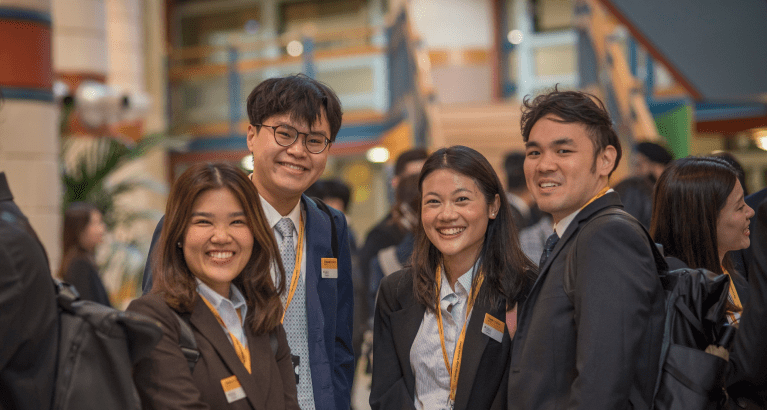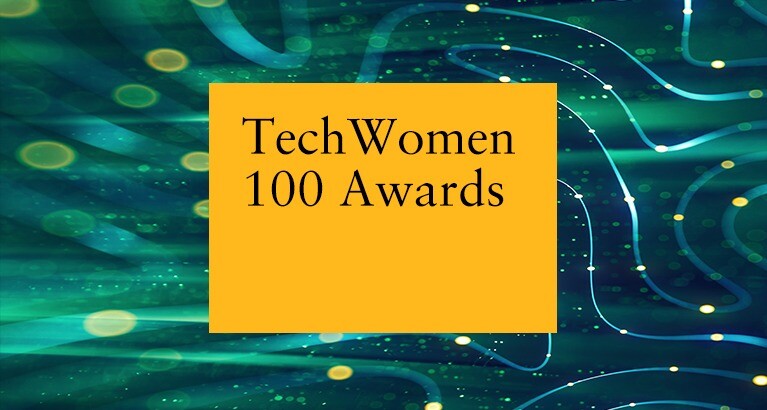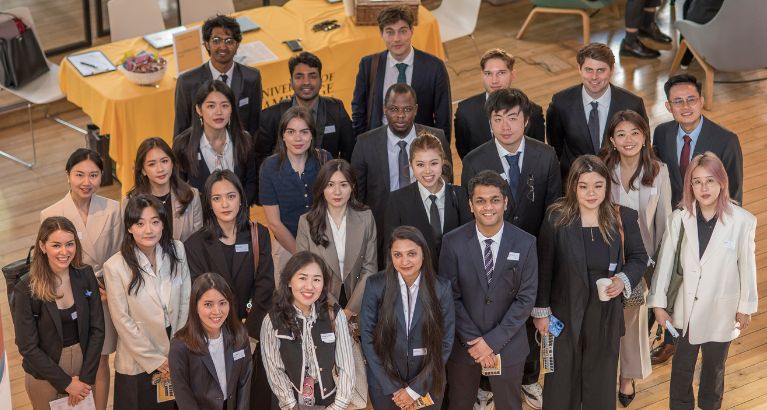If there’s one word that’s all-out dominated the tech landscape over the past couple of years, it’s AI – and businesses are starting to capitalise.
In a recent McKinsey survey, 65% of those asked said their companies were regularly using generative AI, and it looks set to bring substantial economic benefits. According to research by Goldman Sachs, GenAI alone could increase global GDP by 7% – or nearly $7 trillion – over a decade. The McKinsey Global Institute has meanwhile forecasted wider AI to generate an additional $13 trillion globally by 2030.
So how are businesses and their leaders capitalising on AI, what are the key risks and challenges, and what does the future look like? David Stillwell, Professor of Computational Social Science at Cambridge Judge, and Natalie Shenoy, alumna and now Azure Data and AI Lead at Microsoft, share their insights.


AI’s rapid evolution: from business tools to creative innovations
“I think in a decade, we’ll look back and say that AI has been at least as impactful as the dawn of the internet,” says Stillwell.
“I think some people think AI is overrated because it has taken a couple of years to come to reality,” he says. “But it’s common that people overestimate expected change across a couple of years and underestimate it across a decade. AI is moving extremely fast. Even the computer science experts don’t know what’s coming next.”
So, what are the key use cases? “For the businesspeople I talk to, common uses are getting AI to improve their business writing and research,” he says. “More advanced users get AI to analyse data or write programming code.”
He points to a recent tweet by Amazon CEO Andy Jassy, who said Amazon had used GenAI to update its Java code to version 17. “Jassy reported using AI saved the equivalent of 4,500 developer-years of work, saving an estimated $260 million per year in efficiency gains,” says Stillwell.
He believes voice cloning, and image, video and music generation, are other key areas for development. “Startups are appearing all the time, doing tasks like voice cloning and avatar generation,” he says. “This means businesspeople don’t have to record videos in a studio. Their AI clone will just read out a script it’s given in the person’s voice. Image generation has also become very good. Sometimes humans can’t distinguish AI generated images from real ones.”
I think in a decade, we’ll look back and say that AI has been at least as impactful as the dawn of the internet.
AI’s use in finance, healthcare and retail
Shenoy meanwhile points to finance, healthcare and retail as key areas for AI development. “In finance, AI is already being used for fraud detection, risk management and algorithmic trading,” she says. “In healthcare, AI assists in diagnostics, personalised treatment plans and drug discovery.”
“Organisations can benefit from AI by automating routine tasks, gaining insights from large datasets and enhancing customer experiences,” she continues. “Key opportunities lie in areas such as predictive analytics, natural language processing and computer vision.”
It’s also being used in recruitment. According to the Equal Employment Opportunity Commission, 83% of employers – and 99% for Fortune 500 companies – now use automated tools as part of their hiring process.
A recent report by the World Economic Forum, ‘Future of Jobs 2023’, predicted 42% of business tasks would be automated by 2027, speeding up otherwise time-consuming processes and significantly boosting overall efficiency for businesses.
Organisations can benefit from AI by automating routine tasks, gaining insights from large datasets and enhancing customer experiences.
Replacing humans or assisting them?
But as more and more tasks become automated, where do humans stand? According to the World Economic Forum report, 44% of workers’ skills could be disrupted by 2028, and a 2024 IBM study, ‘6 hard truths CEOs must face’, found that 35% of CEO respondents said their employees would need retraining and reskilling over the next 3 years. A Goldman Sachs report earlier this year meanwhile said the equivalent of 300 million full-time jobs could be exposed to automation.
Administrative roles – such as data entry, accounting and secretarial work – and security, factory and commerce jobs, are especially at risk, according to the World Economic Forum.
But Stillwell believes AI is more likely to assist, rather than replace, the need for humans. “For the vast majority of jobs, the AI will support the human in doing their job – so it’s not necessarily a case of job roles disappearing entirely, but rather the job role changing to include interacting with AI,” he says.
“AI might mean we need fewer people to do those jobs because each worker can be more efficient, but it’s also possible that productivity improvements will mean prices fall, so there’s more demand for those services,” he continues.
“For example, in the 1980s, spreadsheets were invented and people predicted we wouldn’t need accountants anymore. What happened instead is that the job of an accountant widened and became more complex – so instead of only getting the profit and loss statement every year, business leaders asked for updates closer to real-time and expected accountants to do more auditing.”
Revolutionising economies through AI
And while some roles may be at risk, many believe AI will open plenty of new opportunities for those willing to adapt. Fifty-one per cent of CEOs in the 2024 IBM survey reported hiring for generative AI-related roles that didn’t exist last year, while AI and machine learning specialists ranked first in the fastest-growing jobs in the World Economic Forum’s ‘Future of Jobs 2023’ report.
“AI can take over repetitive and mundane tasks, allowing humans to focus on more strategic and creative work,” says Shenoy. “This shift will likely lead to the creation of new roles in AI development, data science and AI ethics. Additionally, there will be growing demand for professionals who can bridge the gap between AI technology and business strategy,” she continues.
“By creating entirely new economies for people to thrive in, AI is seen as a transformative technology with the potential to impact every part of the economy – much like the printing press and electricity did in previous industrial revolutions.”
The future of AI
When it comes to the future, many say it’s hard to predict exactly where AI will go – but Stillwell believes decision-making and more complex AI is likely to come into the fray. “In future, AI could be part of business conversations,” he says. “Imagine a brainstorming discussion where the AI interjects with its own ideas and critique, or a C-Suite discussion where leaders are making a strategic decision, and the AI points out some drawbacks or opportunities they hadn’t thought about yet.”
He also believes “AI assistants” will be front and centre further down the line. “I think a big change for society will be when all of us have an AI assistant in our ear, constantly listening to what we hear and maybe even seeing what we see,” he says. “Having followed us around, the AI assistant will understand us very well and be able to anticipate our needs.”
Imagine a brainstorming discussion where the AI interjects with its own ideas and critique, or a C-Suite discussion where leaders are making a strategic decision, and the AI points out some drawbacks or opportunities they hadn’t thought about yet.
What are the challenges of AI?
But as these areas develop, so too do the challenges and risks. “The biggest challenge for generative AI currently is that it’s unreliable,” says Stillwell. “This makes people reluctant to use it in areas where mistakes are costly. It would need a new breakthrough in the technology to overcome this, because currently it’s inherent to the way that large language models (LLMs) work.”
Other risks frequently pointed to include data privacy and cyber-security issues, and the potential for misuse and bias in algorithms (where AI produces results that reflect human and social biases, as a result of the data it’s trained on).
But Stillwell believes a larger concern still could be a fundamental shift in society. “I think the biggest risk is actually around relationships. We’re already in a situation where some people are having friendships or even romantic relationships with AI, and they’re reporting that their AI friends are better than their real-life friends,” he says.
“Their AI friend is always available at any time of night, their AI friend doesn’t get angry, their AI friend is always supportive and doesn’t judge them. Is there a future where it’s common for humans to prefer to talk to AIs, and what does that mean for society?”
Regulating AI
Given the various challenges, many are calling for regulation – but Stillwell believe it’s too early to implement just yet. “When it comes to generative AI, we don’t really know yet what it will be like, what it will do and what might go wrong,” he says. “I think regulators need to be ready to act fast, because if something does go wrong it could go wrong very quickly – but they also shouldn’t jump the gun, because it could stifle innovation.”
Exactly where things go from here is anybody’s guess. Leaders implementing AI in their businesses will need to be prepared to experiment and step into the unknown, providing training to ensure AI helps rather than hinders human employees, and implementing policies to protect wider society at large (there’s some way to go – in the IBM CEO survey, only 39% of leaders asked said they currently had good generative AI governance in place).
If it’s handled in the right way, businesses, individuals and wider economies stand to gain in multiple ways. Only time will tell just how fine a line this is to tread, but one thing’s clear – the AI revolution is coming, and we need to be prepared.
Related news
Programme news
How Cambridge MBA students manage stress and wellbeing
The Cambridge MBA is intense by design. In just one year, students navigate rigorous coursework, build global networks, pursue career transitions and develop leadership skills, all whilst adapting to a new environment and often a new country. It's transformative but it's also demanding. That's why mental health and wellbeing support isn't an afterthought at Cambridge Judge Business School, it's embedded into the fabric of the programme.
Student and alumni news
TechWomen 100 awards for 2 Cambridge Judge alumna
Juliet Powell (MBA 2023) and Joey Deng (MPhil in Technology Policy 2020 ) were honoured by the TechWomen 100 Awards that recognise outstanding achievements of women in technology.
As the holiday season approaches, many applicants find it a useful moment to pause and reflect. Our MBA Admissions team shares some reminders to help guide you as you prepare your Cambridge MBA application.





